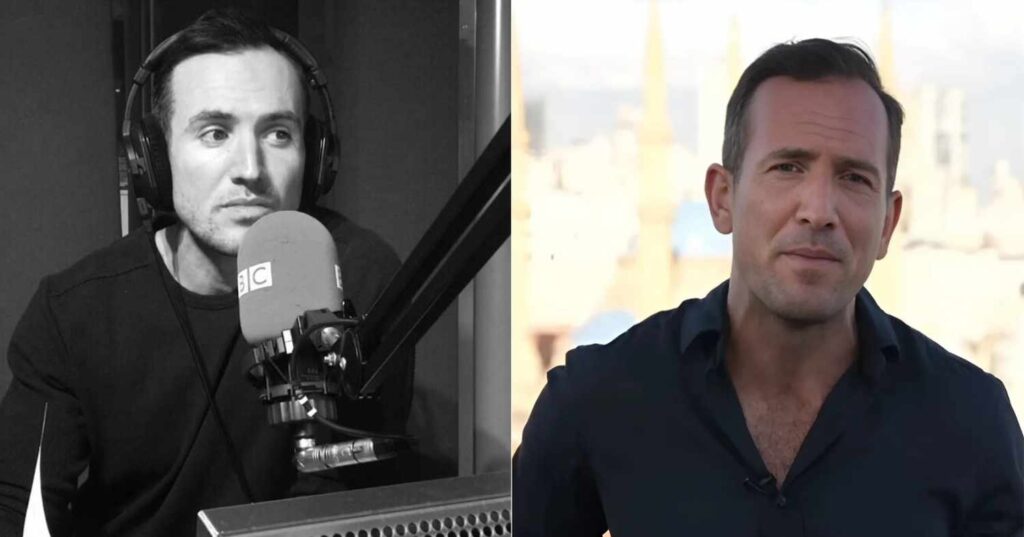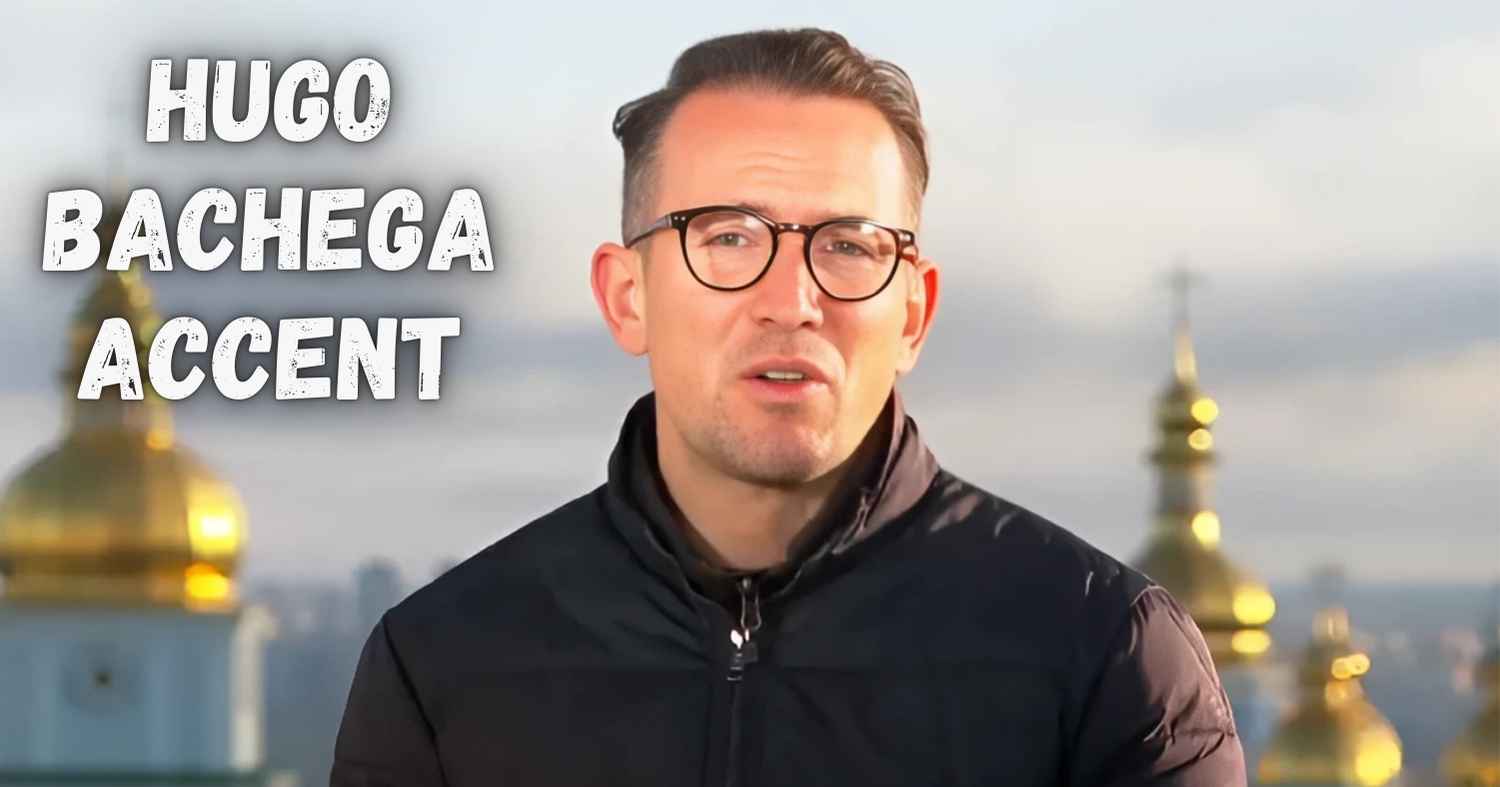When you hear Hugo Bachega speak on BBC News, there’s something instantly recognizable about his voice. His unique accent blends Brazilian warmth with British precision, creating a sound that’s both professional and approachable. This distinctive speaking style has become his trademark in international journalism.
In this article, you’ll discover how Bachega’s multicultural background shaped his voice, why his accent matters in global news, and how it helps him connect with audiences worldwide. We’ll explore the fascinating story behind one of journalism’s most distinctive voices.
Quick Bio
| Detail | Information |
| Full Name | Hugo Bachega |
| Profession | BBC International Correspondent |
| Origin | Brazil |
| Languages | Portuguese, English |
| Specialization | Middle East Reporting, International Affairs |
| Notable Feature | Distinctive Brazilian-British accent |
| Career Highlights | BBC World Service, Global News Coverage |
Who is Hugo Bachega?

Hugo Bachega started his journey in Brazil, where Portuguese was his first language. Growing up in a country known for its vibrant culture and expressive communication style, he developed the foundation of his distinctive speaking pattern. His early years in Brazil gave him the rhythmic flow that still characterizes his speech today.
After building his journalism skills in his home country, Bachega made the bold move to join the BBC. This transition wasn’t just a career change – it was a linguistic transformation. Working in London’s broadcasting environment, he had to adapt his communication style while keeping his authentic voice.
His career took off when he became a BBC correspondent covering international affairs. Bachega’s assignments have taken him to conflict zones and political hotspots around the world. Each assignment added layers to his professional experience and influenced how he communicates complex global stories to diverse audiences.
The Hugo Bachega Accent: A Fusion of Cultures
The Hugo Bachega accent is like a linguistic passport that tells the story of his journey. When he speaks, you can hear the musical quality of Brazilian Portuguese mixed with the crisp articulation of British English. This combination creates something entirely unique in the world of broadcast journalism.
His accent reflects years of cross-cultural communication in newsrooms and field reporting. The Portuguese influence gives his speech a warm, approachable quality that makes viewers feel comfortable. Meanwhile, the British elements add the professional polish expected in international news broadcasting.
This accent fusion isn’t just accidental – it’s the result of genuine multicultural experiences. Bachega didn’t simply learn English; he lived and worked in English-speaking environments while maintaining his Brazilian identity. The result is a voice that bridges cultures and makes global news feel more accessible.
Why Accents Matter in Journalism
In global reporting, how you sound can be just as important as what you say. Accents carry cultural information that helps audiences connect with reporters. When Bachega speaks, his voice immediately signals that he brings a global perspective to the news, not just a Western viewpoint.
Credibility in journalism often comes from authentic voices that reflect real experiences. Bachega’s accent tells viewers he’s lived in different cultures and understands the complexities of international stories. This linguistic diversity adds depth to his reporting that a single-culture accent might not convey.
The media landscape today values authenticity over artificial standardization. Viewers appreciate reporters who sound real rather than manufactured. Bachega’s natural accent evolution represents the kind of genuine cultural fluency that modern audiences respect and trust.
Language Proficiency and Multilingual Skills
Multilingual skills give Bachega advantages that go beyond just speaking different languages. His language proficiency allows him to understand cultural nuances that monolingual reporters might miss. When interviewing sources, he can pick up on subtle meanings and cultural references that add richness to his stories.
His Brazilian Portuguese background helps him connect with Latin American sources and understand regional perspectives. This linguistic foundation gives him insights into how different cultures view global events. It’s not just about translation – it’s about cultural interpretation.
The British English influences in his speech help him communicate effectively with international audiences. His ability to code-switch between more formal and casual speaking styles makes his reporting accessible to different viewer demographics. This flexibility is crucial in digital media where content reaches diverse global audiences.
The Public Perception of the Hugo Bachega Accent
Social media buzz around the Hugo Bachega accent shows how much audiences notice and appreciate distinctive voices in journalism. Viewers often comment on his unique sound, with many expressing curiosity about his background. This interest demonstrates how accents can make journalists more memorable and relatable.
Accent perception research shows that listeners form quick judgments about speakers based on how they sound. Bachega’s accent generally receives positive reactions because it sounds both professional and authentic. Viewers see him as knowledgeable but not pretentious, international but not disconnected from everyday concerns.
The audience engagement his accent generates actually helps his journalism reach wider audiences. When people share clips of his reports partly because of his distinctive voice, it amplifies the reach of important global stories. His accent becomes a tool for better news distribution.
Cultural Representation and Global Media
Cultural representation in news matters more than ever in our connected world. Bachega’s presence on BBC shows how media diversity can improve global news coverage. His accent immediately signals to audiences that they’re getting perspectives from someone who understands multiple cultural contexts.
Inclusive journalism benefits when newsrooms include voices from different backgrounds. Bachega’s multicultural background allows him to approach stories with sensitivity to various cultural perspectives. This awareness shows in how he frames questions during interviews and explains cultural context to international audiences.
His success demonstrates that media pluralism strengthens journalism rather than weakening it. Having reporters who sound different and bring different cultural insights makes news coverage richer and more accurate. Bachega proves that authenticity in broadcasting creates stronger connections with global audiences.
Accents in the Age of Digital Media
The digital media era has amplified how much accents matter in journalism. With news clips shared across social platforms, reporters’ voices reach audiences they never directly broadcast to. Bachega’s distinctive accent makes his clips more shareable because people remember and recognize his voice.
Global storytelling in digital formats requires voices that can cut through noise and grab attention. His accent serves this purpose perfectly – it’s professional enough for serious news but distinctive enough to stand out in crowded social media feeds. This combination helps important stories reach larger audiences.
Narrative diversity in digital journalism benefits from reporters who bring different linguistic perspectives. Bachega’s accent represents the kind of authentic global voice that resonates with international online audiences. His success shows how embracing linguistic diversity can be a competitive advantage in digital news.
Key Achievements and Recognition
- International correspondent covering major global events
- Trusted voice in Middle East reporting and analysis
- Cultural bridge between Latin American and British audiences
- Digital media success with widely-shared news clips
- Professional recognition for authentic global journalism
Frequently Asked Questions
What makes Hugo Bachega’s accent unique? His accent combines Brazilian Portuguese musical qualities with British English precision, creating a distinctive sound that reflects his multicultural journalism career.
Where is Hugo Bachega originally from? Bachega is originally from Brazil, where he began his journalism career before joining the BBC and working internationally.
Why is his accent important in journalism? His accent represents authentic global perspective and cultural fluency, helping him connect with diverse audiences and bring credibility to international reporting.
How did working at BBC influence his accent? Years of broadcasting in British media environments added English influences to his natural Brazilian speech patterns, creating his signature sound.
Does his accent help or hurt his journalism career? His distinctive accent has become a professional asset, making him more memorable and helping audiences connect with his international reporting.
Conclusion: The Accent as an Asset
The Hugo Bachega accent represents more than just a way of speaking – it’s a symbol of authentic global journalism in action. His voice carries the story of a journalist who embraced cultural diversity rather than hiding it. This approach has made him more effective at connecting with international audiences and telling global stories.
In today’s media environment, authenticity matters more than artificial perfection. Bachega’s success proves that journalists don’t need to sound like everyone else to succeed. His distinctive voice has become his strength, helping him stand out in the competitive world of international reporting.
His accent reminds us that the best journalism comes from real experiences and genuine cultural understanding. As global news continues to evolve, voices like Bachega’s show the path forward – authentic, diverse, and truly international in perspective.
Frequently Ask Question
What makes Hugo Bachega’s accent so distinctive?
Hugo Bachega’s accent uniquely blends Brazilian Portuguese warmth with British English precision. This fusion creates a memorable sound that reflects his multicultural journalism journey from Brazil to the BBC.
Where did Hugo Bachega originally come from?
Hugo Bachega is originally from Brazil, where Portuguese was his first language. He later moved to work with the BBC in London, which influenced his distinctive speaking style.
Does his accent affect how people view his reporting?
His accent actually enhances his credibility by showing authentic global experience. Audiences appreciate his genuine multicultural perspective rather than a standardized broadcasting voice.
How did working at BBC change his way of speaking?
Years of broadcasting in British media environments added English influences to his natural Brazilian speech patterns. This professional environment helped him develop his signature international sound.
Is his unique accent helpful or harmful for his career?
His distinctive accent has become a major professional asset in international journalism. It makes him more memorable and helps audiences connect with his global news reporting.
Read More:

